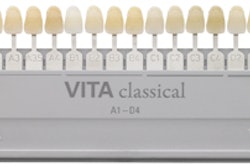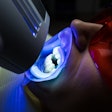New data suggest that the drug Topamax (topiramate) and its generic versions increase the risk for cleft lip and cleft palate in babies born to women who use the medication during pregnancy, the U.S. Food and Drug Administration (FDA) is warning.
Before prescribing topiramate, approved to treat certain types of seizures in people who have epilepsy, healthcare professionals should warn patients of childbearing age about the potential hazard to the fetus if a woman becomes pregnant while using the drug.
Topiramate is also approved to prevent migraine headaches, but not to relieve the pain of migraines.
"Healthcare professionals should carefully consider the benefits and risks of topiramate when prescribing it to women of childbearing age," said Russell Katz, MD, director of the Division of Neurology Products in the FDA's Center for Drug Evaluation and Research, in a press release. "Alternative medications that have a lower risk of birth defects should be considered."
Data from the North American Antiepileptic Drug (AED) Pregnancy Registry indicate an increased risk of oral clefts in infants exposed to topiramate during the first trimester of pregnancy, according to the FDA. Infants exposed to topiramate as a single therapy experienced a 1.4% prevalence of oral clefts, compared with a prevalence of 0.38% to 0.55% in infants exposed to other antiepileptic drugs.
Infants of mothers who did not have epilepsy and were not being treated with other antiepileptic drugs had a prevalence of 0.07%. Similar data from the U.K. Epilepsy and Pregnancy Register supported the North American AED Pregnancy Registry data, the FDA said.
Based on the data, topiramate will have a stronger warning in its prescribing and labeling information, according to the agency. The pregnancy category will be changed to Pregnancy Category D, indicating that there is positive evidence of human fetal risk based on human data, but the potential benefits of the drug in pregnant women may outweigh the risks in certain situations.
The FDA previously designated the drug as Pregnancy Category C because of the lack of human data.



















